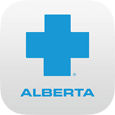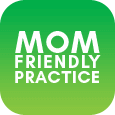What You Need To Know About Emergency Dental Care
If you have a dental emergency, it’s essential to understand what to do and when to seek care from your Calgary, Alberta, dentist. At Calgary Dental Centers, we want you to be prepared to identify common dental emergencies and take the appropriate action. If you are unsure what to do in a dental emergency, please reach out to us, and we will guide you. If you experience any injury or trauma to the head, please dial 911 or head to your nearest emergency room.

What is a dental emergency?
A dental emergency is when your tooth cracks, breaks, becomes loose or is knocked out. Lost restorations such as dental crowns or fillings can also be considered dental emergencies.
Many dental emergencies occur during physical contact activities such as sports. Wearing a mouthguard when participating in these activities can minimize the risk of a dental emergency.
How do I handle a knocked-out tooth?
If your tooth is knocked out, quick action becomes crucial. A knocked-out tooth must be re-inserted by a dentist within an hour for the chance of a successful outcome.
Here’s what you should do if your tooth is knocked out:
- Call the office immediately for an emergency dental appointment
- Touch the tooth only by the crown, avoid touching the root
- Gently rinse the tooth off to remove any debris
- Try and place the tooth back gently in its socket to keep it moist
- If that’s not possible, place the tooth in a glass of milk or a damp, clean gauze
If a primary tooth falls out, the tooth will not be re-inserted. However, it’s still important to call the office for an appointment to ensure no tooth fragments remain in the mouth.
How do I handle a fractured tooth?
Chipped teeth are considered minor fractures and are generally not a dental emergency. Moderate or severe fractures can include damage to the tissue or pulp and will require emergency care.
Here’s what you should do if you fracture a tooth:
- Call the office to request an emergency dental appointment
- Rinse the mouth out and use an ice pack on the cheek for swelling
- Ibuprofen can be taken for any pain
- Once at the office, the dentist will attempt a restorative procedure to fix the tooth, including bonding, or a dental crown
- If the tooth cannot be recovered, we can discuss tooth replacement options
How do I handle a severe toothache?

Severe toothaches can be caused by a deep crack or break or a deep cavity that has reached into the tooth’s pulp. If you have a toothache that interferes with your daily life, that is considered a dental emergency.
Here’s what you should do for a severe toothache:
- Call the office to request an emergency dental appointment
- Rinse the mouth out and try brushing gently to dislodge any debris that may be lodged between teeth
- Ibuprofen or Acetaminophen can be taken for the pain
- A cold compress on the cheek can help with pain or swelling
- Depending on the cause of the toothache, root canal therapy may be necessary to remove the infected portion of the tooth. A dental crown will be placed over the tooth to protect it from further damage
It’s important to note that pain from a toothache may come and go, but the underlying issue must still be addressed. Failure to seek treatment for a toothache can lead to further damage and more costly restorations.
How to be prepared for any dental emergency
There are a few things you can do to ensure that you are prepared for a dental emergency before it occurs:
- Know your dentist’s phone number, including how to contact them after hours and on weekends
- Keep a dental first aid kit with:
- Pain relievers
- Gauze
- Saline solution
- Ice pack
- Small container with lid
Call Calgary Dental Centers for your routine and emergency dental needs
We offer comprehensive dental services for the whole family. To learn more about our office or to schedule an appointment, please call (403) 768-1339.








